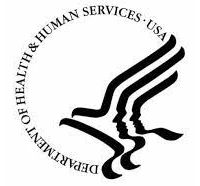HHS announces a historic notice of proposed rulemaking for section 504!

The proposed rule, Discrimination on the Basis of Disability in Health and Human Service Programs or Activities will update, clarify, and strengthen the regulations in Section 504 of the Rehabilitation Act of 1973, commonly known as section 504.
The new proposed rule will provide for even more protections for people with disabilities in federally funded health and human services programs and make sure that people with disabilities are not discriminated against in any program or activity that receives federal funds just because the person has a disability.
Summary by category:
- Medical Treatment This will address discrimination in contexts of organ transplants, life-sustaining treatment, crisis standards of care when resources are limited, and participation in clinical research. The purpose is that medical treatment decisions will not be biased or based on stereotypes about people with disabilities and that the life of a person with a disability has no less value that the life of a person without a disability.
- Value Assessment Methods This will address discrimination in the context of determining whether a particular medicine or treatment will be provided and under what circumstances. The purpose is that deciding if a medicine or treatment will be used will not be denied to a person with a disability and so that medical professionals do not place a lower value of life-extension for people with disabilities as a way to limit access or deny aids, benefits, or services.
- Child welfare programs and activities This will address discrimination in the context of parent-child visitation, reunification services, child removals and child placement, guardianship, parenting skills programs, foster and adoptive parent assessments, and in and out of home services. The purpose is so that children, parents, caregivers, foster parents, and prospective parents are not discriminated against when accessing critical child welfare programs and activities.
- Web and mobile accessibility This will ensure that web content and mobile applications are readily accessible to and usable by individuals with disabilities. The purpose is to define what accessibility means for web and mobile applications and sets forth specific technical standards for 504 compliance (the new standards will align with the new proposed rule by DOJ for Title II of the ADA). Note: There are time effective date requirements, exceptions, and conforming alternate version language that make this section very complicated and not parallel to the ADA. (see p. 390-395 for details)
- Accessible medical equipment This will address the lack of accessible medical equipment such as exam tables, mammography machines, and weight scales. The purpose is to establish enforceable standards for accessible medical diagnostic equipment. There will be a time requirement of within 2 years of the rule’s effective date to have at least one accessible exam table and at least one accessible weight scale.
- Integration This will address the need to have integrated programs and activities in community-based settings. The purpose is to make sure that people with disabilities can request reasonable accommodations to be able to participate in programs and activities in community-based settings.
The new rule will also make changes that are needed so that Section 504 is consistent with the Americans with Disabilities Act (ADA) and other significant case law.
Summary by category to make section 504 more consistent with the ADA:
- Service Animals Trained service dogs must be permitted.
- Maintenance of accessible features Facilities and equipment that is required to be accessible to people with disabilities must be maintained in operable working order.
- Personal services and devices Personal services and devices are not required unless they are customarily provided to individuals without disabilities.
- Mobility devices Manually powered mobility devices are allowed in areas open to pedestrians and power-driven mobility devices are allowed under certain circumstances.
- Communications Effective communication is required for people with hearing, vision, and speech impairments through the provision of auxiliary aids and services, when need. (ex. Qualified interpreters, text telephones, information in braille, large print, or electronically with a computer screen-reading program)
- Direct threat If a person poses a direct threat, then the person is not permitted into the program or activity.
- Illegal use of drugs The rule does not apply to people currently using illegal drugs.
- Retaliation and coercion A person may not be retaliated against for making a complaint or objecting to any act or practice that is made unlawful by section 504.
- Standards All new building or alterations must comply with the 2010 standards for accessible design issued by the DOJ.
- Limitations Exceptions include a fundamental alteration in the nature of the program or undue financial or administrative burden.
There will be a public comment period for this proposed rule. The comment period will be open for 60 days for members of the public to provide comments. The comments must be received on or before November 13, 2023.
You can submit comments, identified by RIN 0945-AA15, electronically, or by mail or by hand delivery or courier to the following address only: U.S. Department of Health and Human Services, Office for Civil Rights, Attention: 504 NPRM (RIN 0945-AA15), Hubert H. Humphrey Building, 200 Independence Avenue SW, Washington, DC 20201.
For more information, go to OCR’s website or Contact Molly Burgdorf, Office for Civil Rights, Department of Health and Human Services at (202) 545-4884 or (800) 537–7697 (TDD), or via email at 504@hhs.gov.













